vol.
014
SEPTEMBER
2016
vol.014 / Roundtable
What Movies and Music Teach Us about the True Nature of the Body
Ryosuke Nagaoka (musician) × Yuki Yamato (film director)
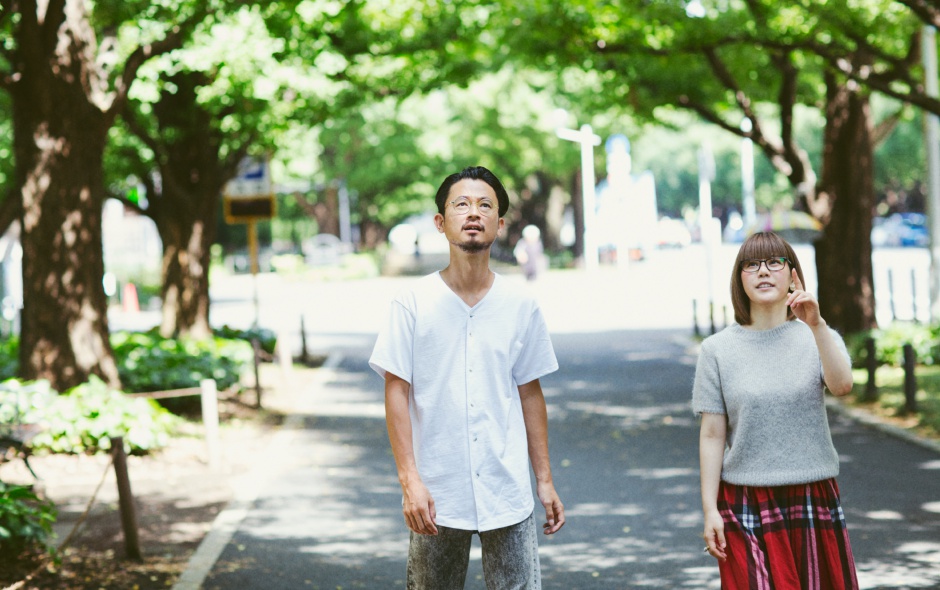
Rather Than Taking the Shortest Route
Yamato: Your record of great plays is extensive, but it seems to me that you don’t have many bloopers.
Nagaoka: I make nothing but bloopers. About 80% of what I’ve done has been bloopers. 10% has been ordinary, and another 10% falls into the great plays category. I guess that’s the ratio.
Yamato: I didn’t expect that.
Nagaoka: It’s a terrible thing to say, but I actually quite like straying off piste when I’m playing a major gig. Including making mistakes.
Yamato: (Laughs) You enjoy destabilizing the pre-established harmony, right? How do the other members of Petrolz, for example, react when you do that in the middle of a performance?
Nagaoka: A warm, if wry smile. Just a little warmer than room temperature (laughs). What’s it like when you’re filming?
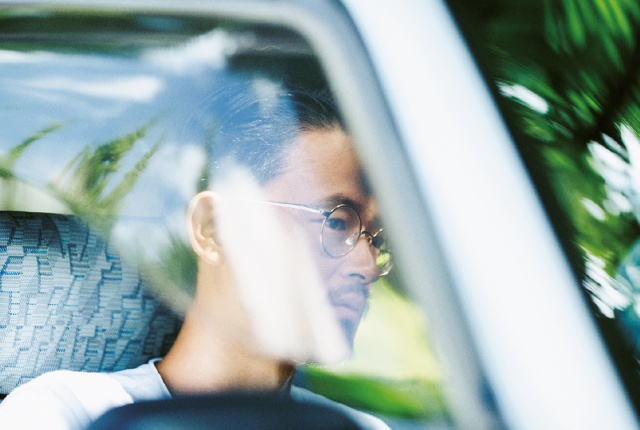
Yamato: 99% bloopers (laughs).
Nagaoka: We’re fellow blooper artists (laughs). But I think that if you stumble and blunder your way along, you’ll eventually come to see what you actually want to do. I realize that, so I never ever aim to achieve perfection from the outset.
Yamato: Taking diversions like that actually gets you closest to your goal. If you’re looking for the shortest route, maybe you only end up with something that can be summarized in words.
Nagaoka: I guess perhaps I do want to use my body to create a work through a sensory experience. Particularly when I’m creating something with others rather than on my own, things also depend on their mood as well, so I always start by playing catch with them to get some insight into that. I guess it’s the same for you?
Yamato: Yes. It’s a method with a high cost in terms of communication.
Nagaoka: That’s right.
Yamato: For instance, it’s simple to tell an actor, “I want you to run from here to there as fast as you can,” but sometimes they’ve dashed off at full pelt of their own accord, without my expecting it. But you can end up with a miraculous cut because of that, sometimes. That kind of behavior comes at a cost, of course.

Provincial Tokyo
Yamato: I came up to Tokyo from Aichi for university; when I saw Petrolz for the first time at a small music venue in Shimokitazawa, I finally felt I was really in Tokyo.
Nagaoka: We’re a bit better now than we were back then, so do come and see us again.
Yamato: Oh, even then I went home totally exhilarated. Recently, I’ve been feeling really strongly that the independent films coming out of Tokyo are something akin to the experience of seeing a live gig. Tokyo is definitely spawning this intense maelstrom of feeling. The question is how to bring this to other parts of Japan and the rest of the world without cooling that passion. That’s become a focus for me recently — I’ve got to consider it properly while I’m right here in Tokyo. What kind of place do you see Tokyo as, Nagaoka-san?
Nagaoka: When I was young, I had a weird complex about Tokyo, believing it to be scary, but when I thought about it really hard, that was just my impression of a few places, like Shibuya and Shinjuku in those days. Really and truly, there’s much more to Tokyo than that — there are all kinds of places here. It’s really interesting to explore. And when I realized that, I began to feel more comfortable here and recently I’ve even begun to think of Tokyo as just another provincial city. Well, maybe that’s just my age.
Yamato: Provincial Tokyo. . . I really feel like I can express my opinions more freely since coming to the metropolis than I could when I was in my hometown. I definitely get the sense that being able to do as I please is influencing the works I make.
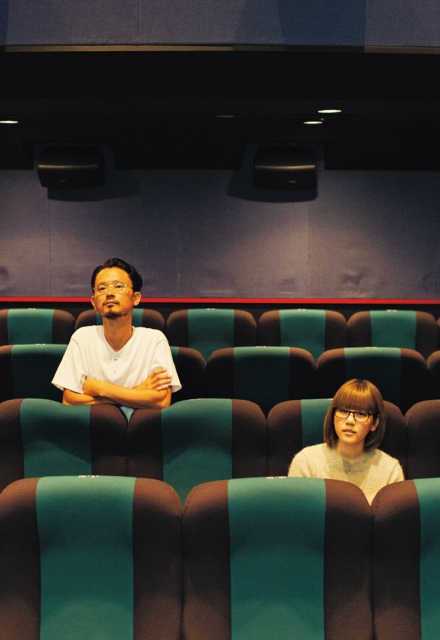
Nagaoka: There are so many different people here, so maybe that makes you feel like you’ve got more freedom.
Yamato: Tokyo’s really diverse, isn’t it? Have your experiences in Tokyo inspired any of your music?
Nagaoka: I never make music in a vacuum, so my life here is certainly reflected in my music.
Yamato: Yes, like a mirror. Oh, I did want to ask you something. Nagaoka-san, when you said “maybe that’s just my age” just now, was that a bit of a pun. . . ?
Nagaoka: . . . ??? What do you mean?
Yamato: You didn’t just mean “age,” but also “city?” [In Japanese, these two words are homophones]
Nagaoka: Oh! You couldn’t laugh, even though you wanted to? Your antennae as a director are quite incredible (laughs).
-
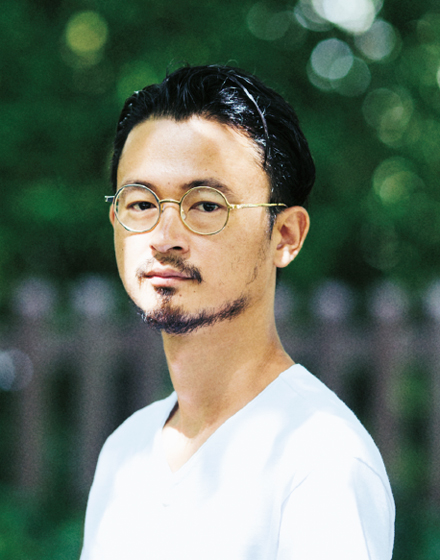
Ryosuke Nagaoka
Musician. Born in 1978 in Chiba. As well as his work as a guitarist, his diverse activities include songwriting and production for other artists. He sings and plays guitar as frontman of Petrolz, which released its first full album Renaissance last year. The band is currently on a 16-date nationwide tour entitled “On The Road Again Again.” www.petrolz.jp
-
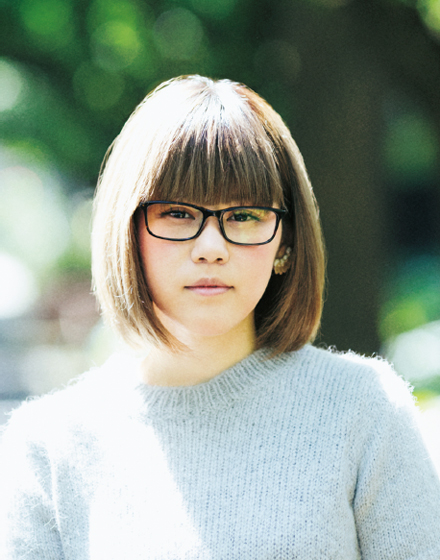
Yuki Yamato
Film director. Born in Aichi. Made her debut in 2012, while still a student at Sophia University, with the film Ano ko ga Umibe de Odotteru [That Girl Is Dancing by the Seaside]. In 2014, her film Itsutsu Kazoereba Kimi no Yume [Count Five to Dream of You] was released at Shibuya’s Cinema Rise, making her the youngest director to have a film shown there, while Otogibanashi Mitai [Like A Fairytale] attracted the best late show audiences for 13 years at Theatre Shinjuku. Her latest work is Oboreru Knife [Drowning Love], a live-action version of George Asakura’s popular manga for teenage girls, starring Nana Komatsu and Masaki Suda (released in cinemas nationwide on November 5).
Editing & Written by Nanae Mizushima
Photography: Isao Hashinoki / nomadica
Hair & Make-up: Kan Satoh / KOHL (Yuki Yamato)
Special Thanks: GAGA Corporation
Translation: Office Miyazaki, Inc.



